• Number: Counting, Place Value
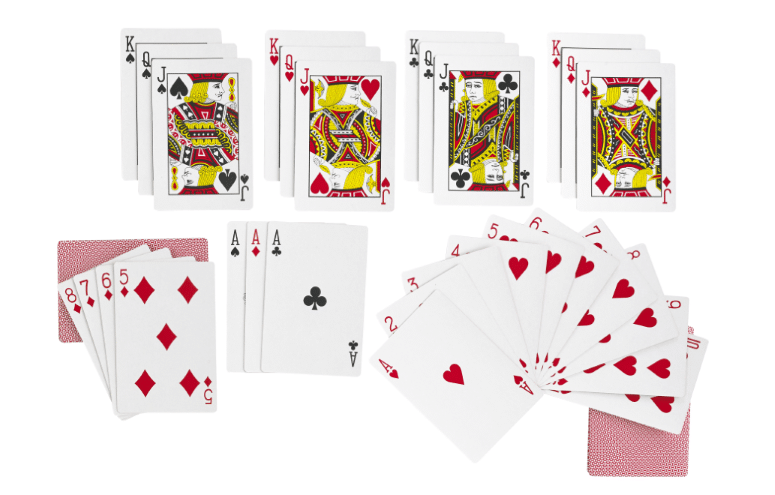
Playing cards are a simple and cheap teaching tool. Young children need to be taught simple card games such as memory/matching, snap (war), concentration and simple Rummy type games where players collect groups of like cards. These simple game formats may be applied to various topics and provide opportunity to practise certain skills.
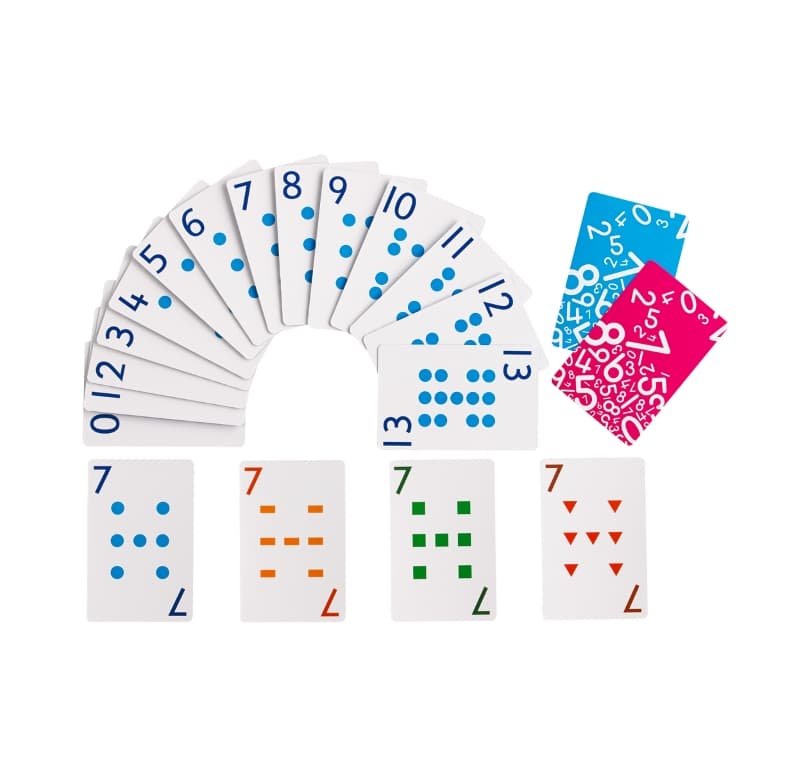
School Friendly Cards
At times the association of standard playing cards with gambling can cause concern. Child Friendly Number Cards are a great substitute. These cards are designed for younger children, but are still suitable for older students. They:
• Include a zero card
• The picture cards Jack, Queen and King have been replaced by an 11, 12 and 13
• There are no suits such as clubs, spades etc, but rather colours and shapes
• The shapes on each card have been configured in standard subitising patterns
Cards Videos

Mathematical Language
Anticlockwise, clockwise, Clubs, Diamonds, Hearts, Spades, deal, deck, pack, shuffle, subitising, add, subtract, count.
Using Playing Cards
When first teaching children to play card games, three simple rules need to be adopted. This will avoid problems and disputes.
- The dealer ALWAYS deals first to the player on the left.
- The dealer ALWAYS deals in a clockwise direction. (Young children will need to be taught which direction is left and what clockwise means.)
- No one picks up his/her cards until all of the cards have been dealt.
Once students understand how to play some basic card games they may be modified. For example, instead of playing number snap, students could play geometry or shape snap. There are many commercial variations of snap available, but it is fairly simple to create your own games using blank cards.
Typical Classroom Requirements
class set:
Minimum Requirement: I pack per group of four students
Ideal Requirement: 1 pack per pair of students
Support and Complementary Materials
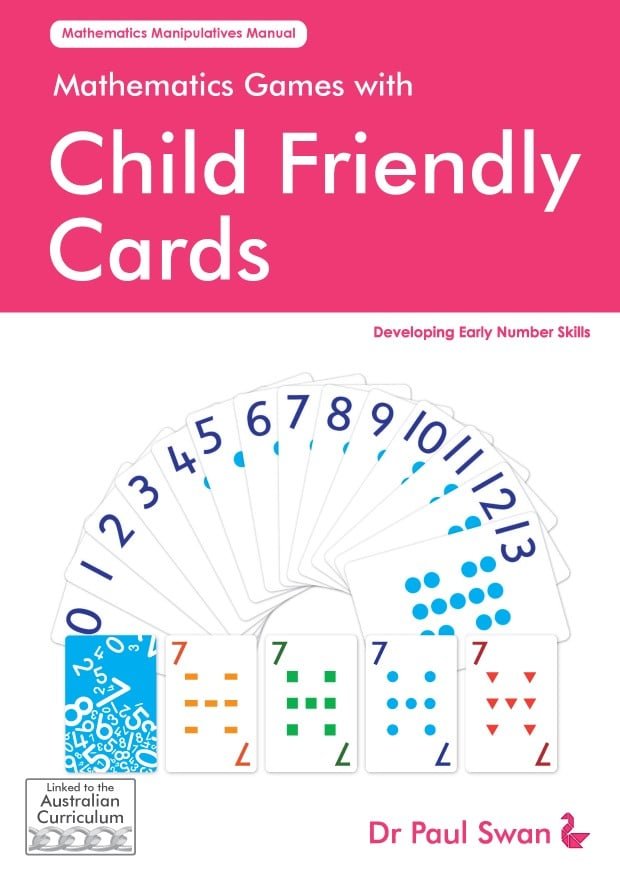
Dr Paul Swan’s Mathematics Games with Child Friendly Cards

Blank Playing Cards

Jumbo Playing Cards
Specialty Card Games
There are many specialty card games. Typically they follow the basic rules listed above. Two such games are:
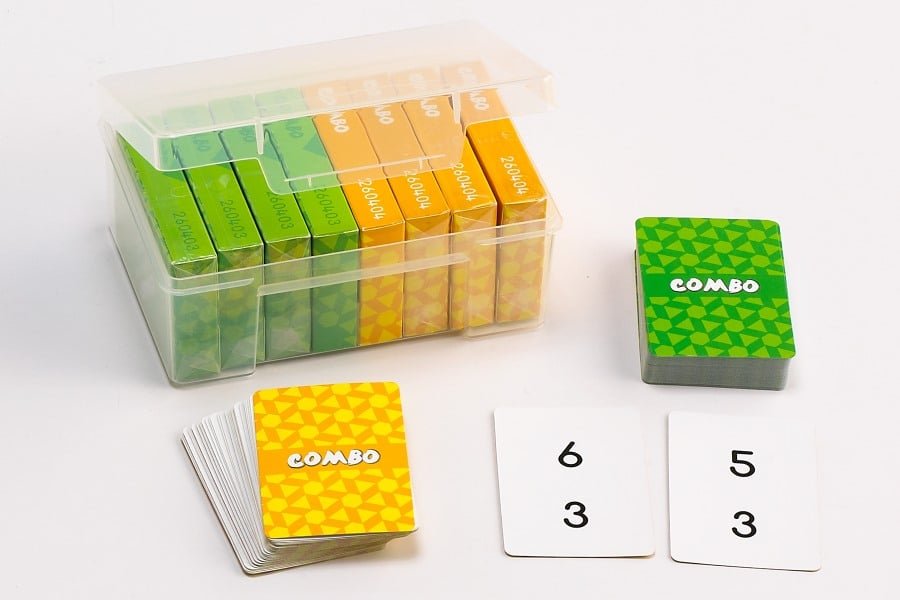
COMBO
Designed to help students practice their basic number facts – addition, subtraction, multiplication and division facts
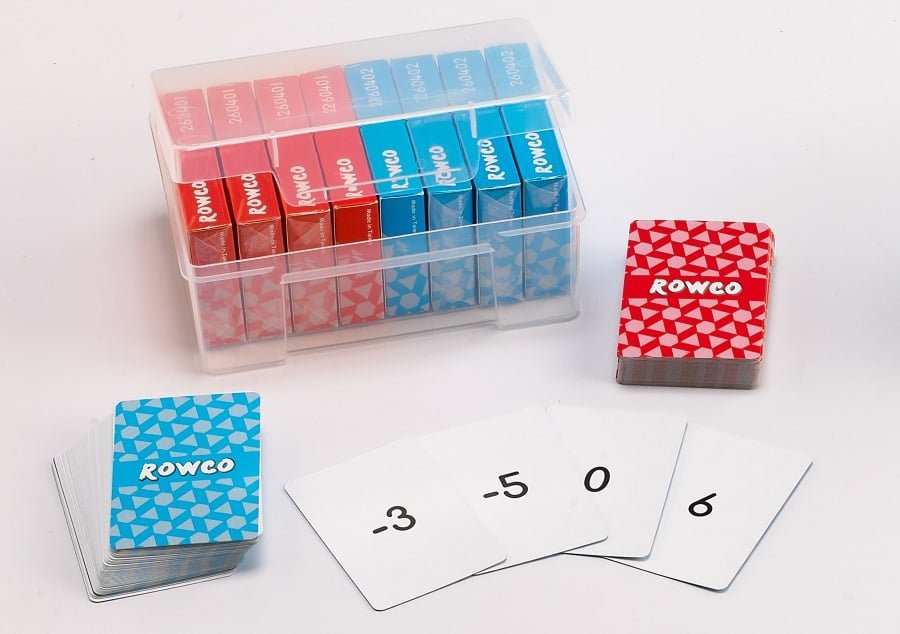
ROWCO
Introduces students to negative numbers and exposes them to strategic thinking and reasoning. Students have to think ahead, similar to the way chess players have to plan their next move.